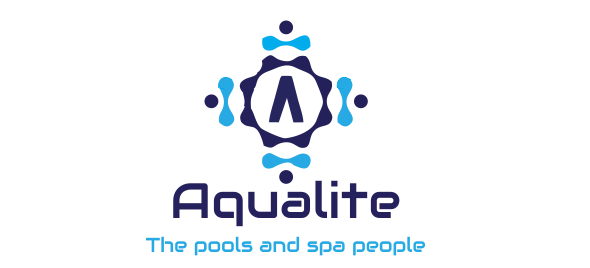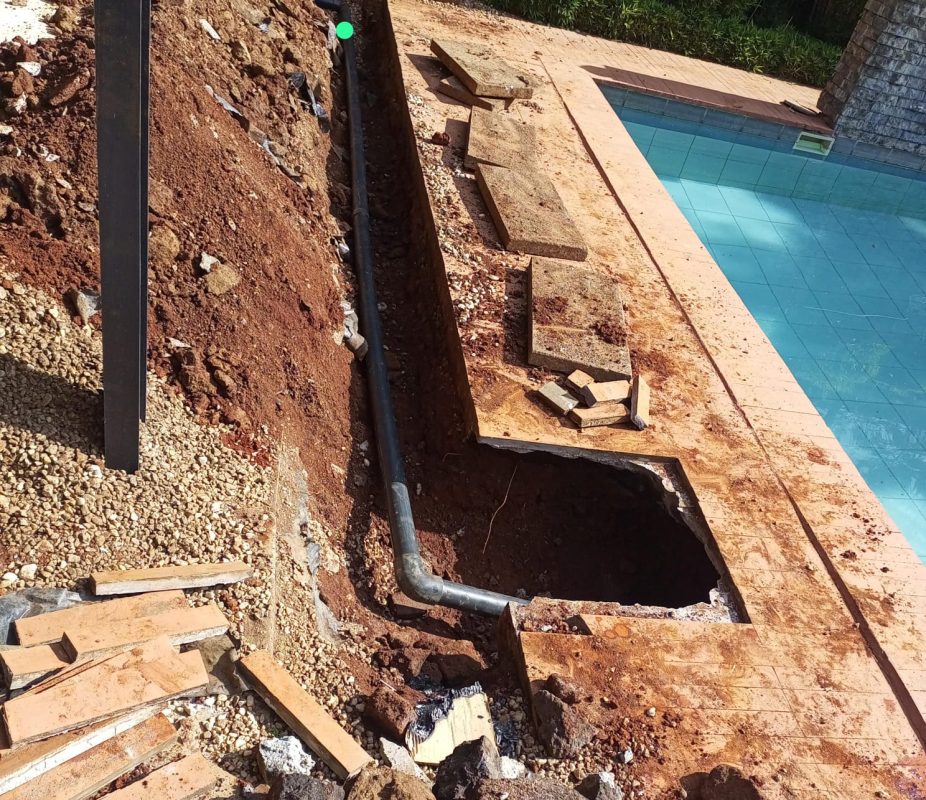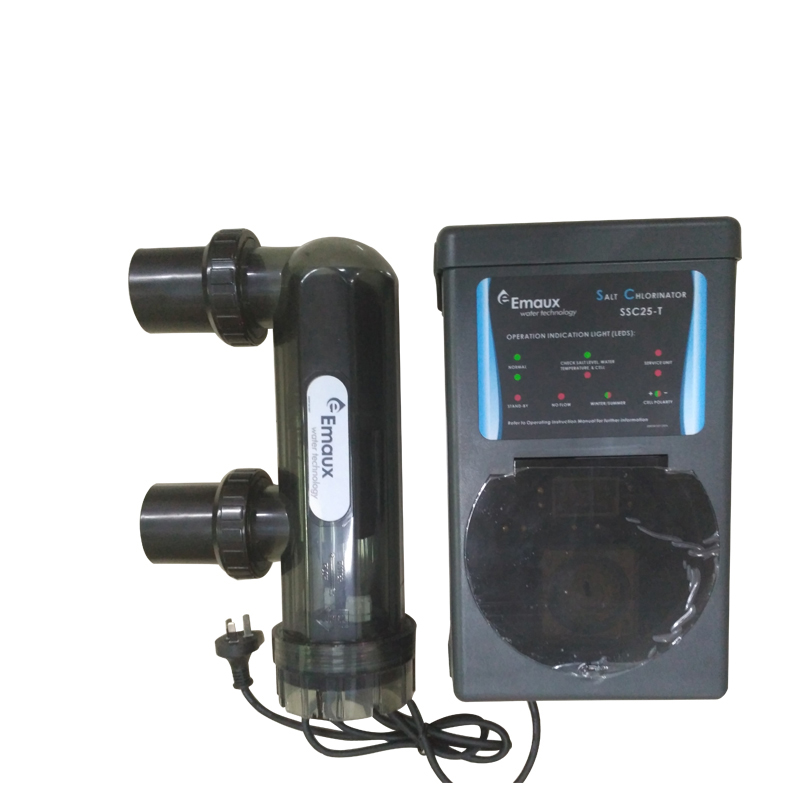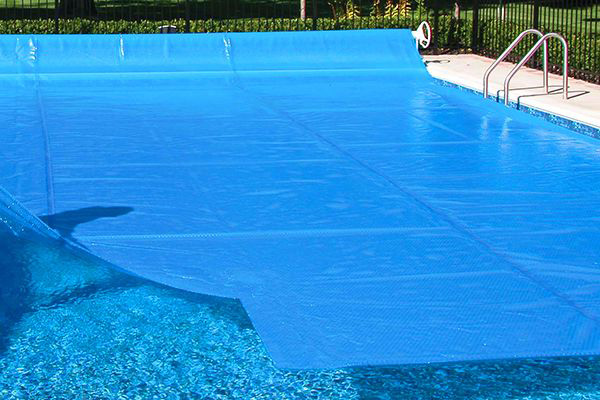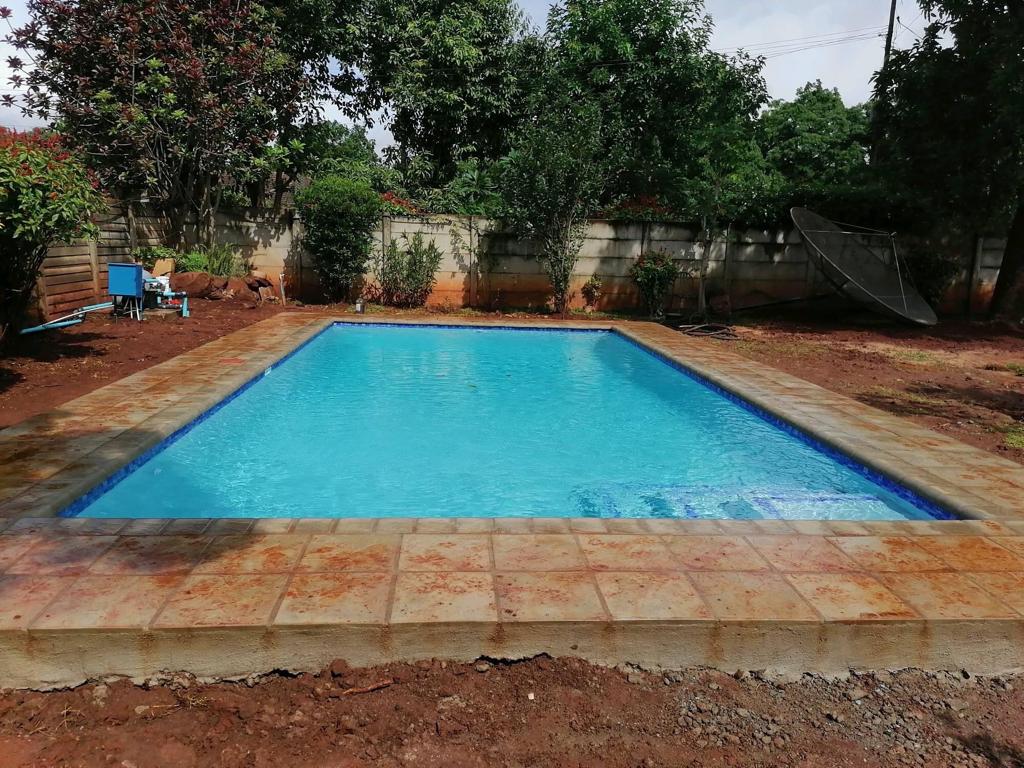As a proud pool owner, there’s nothing more disheartening than discovering a leakage in your oasis of relaxation. Not only can it lead to a significant water loss, but it may also cause damage to the surrounding area if left unaddressed. In this blog section, we will explore some of the most common causes of swimming pool leakage, helping you identify the culprit and understand the importance of timely repairs. 1. Structural Damage: Over time, the structure of your swimming pool may develop cracks or deteriorate. This can be caused by a variety of factors, including ground movement, freezing and thawing cycles, or even improper installation. These cracks, if neglected, can quickly become a major source of water leakage. Hiring a professional pool technician to assess and repair the structural damage can prevent further complications down the line. 2. Plumbing Issues: Faulty or damaged plumbing components are often the primary culprits behind pool leaks. Issues such as loose fittings, worn-out seals, or malfunctioning valves can lead to water seepage. In some cases, even a small leak in the pipes can result in significant water loss over time. Conducting regular inspections of the plumbing system and conducting proactive maintenance can help identify and address these issues before they escalate. 3. Skimmer or Return Leaks: The skimmer and return lines, responsible for ensuring proper water circulation, may develop leaks over time. Cracked or faulty skimmer throats, damaged return jets or impaired connections can contribute to water escaping the pool. If you notice water levels consistently dropping, these components should be inspected and repaired promptly to avoid further water loss. 4. Vinyl Liner Tears: For pools with vinyl liners, tears or punctures in the liner can cause water to leak out. Sharp objects, improper cleaning techniques, or aging liners are common factors contributing to this issue. Detecting and repairing vinyl liner leaks can be challenging, as they are often small and hard to detect. Consulting a professional pool technician experienced in vinyl liner repairs is crucial to accurately identify and address these leaks. 5. Groundwater Pressure: In some cases, leakage may be due to excessive groundwater pressure around the pool. This can lead to hydrostatic pressure, forcing water into the pool through cracks or weak points in the structure. Installing a hydrostatic relief valve or implementing appropriate drainage systems can help alleviate this issue and prevent further leaks. Remember, prompt identification and repair of pool leakage is vital to minimize water loss, prevent further damage, and maintain a safe and enjoyable swimming experience. If you suspect a pool leak, it is recommended to consult qualified swimming pool experts like Aqualite for a thorough inspection and professional repair options. Acting swiftly can not only save you money but also preserve the longevity of your pool, allowing you to relish many more refreshing dips for years to come. For swimming pool leakage consultation and repairs, contact us at info@aqualite.co.ke
Category Archives: Construction
Typically, the practical way to keep most swimming pools sanitary was by adding large quantities of chlorine to the pool water. While highly effective at killing all kinds of nasty microorganisms, pool chlorine is definitely unpleasant to work with, is odorous , and can sometimes be harmful if accidentally spilled. Consequently, many pool owners have ditched conventional chlorine tablets, powders and solutions, and instead choose salt water chlorinators to keep their pool water clean and safe. These unique devices have numerous advantages over conventional pool chlorine, and are well worth the investment for many outdoor pool owners. How does a salt chlorinator work? Salt water chlorinators use a simple electrical phenomenon called electrolysis to transform sodium chloride, better known as common household salt, into chlorine.A salt cell and power supply work with a low voltage current. As water flows through the cell, the voltage splits the salt and water into hydrogen and hypochlorous acid (Hypochlorous acid is a weak acid that forms when chlorine dissolves in water). Hypochlorous acid is a replacement for pre-packaged chlorine. This chemical reaction converts the dissolved salt into chlorine, and the newly chlorinated water is then released back into the pool. What are the advantages of using salt water chlorinators in outdoor pools? Safe and easy to use Because salt water chlorinators only require a supply of salt and a low-power electrical supply to create chlorine, they are extremely safe to use. You will never have to handle any more toxic chlorine yourself, and accidentally spilling a bucket of salt over your forearm is definitely less painful.Using a salt water chlorinator also eliminates the possibility of accidental chlorine overdose, which can cause eye and skin irritation in swimmers and can damage and discolour swimming costumes. They create chlorine at a slow, steady rate, and most models feature control boards that you can use to lessen or cut the supply of power to the chlorinator when pool chlorine levels get too high. Environmentally friendlyChlorine doesn’t just kill bacteria and algae — it kills pretty much everything that is exposed to too much of it. if you accidentally spill your supply of pool chlorine, or your chlorine containers leak while they are in storage, the toxic chlorine can cause widespread contamination of the surrounding soil, and can also poison local groundwater supplies. An investment in a salt water chlorinator is a much more environmentally friendly option, since they only require non-toxic salt to function. They also require very little energy to run, so they will not significantly increase your pool’s energy consumption or carbon footprint. Lower long-term costsA high quality salt water chlorinator for your pool represents a significant investment, but one that will pay for itself over time, for one simple reason; salt costs significantly less than pool chlorine. Rock salt, which is the purest type of salt used in pools, costs a fraction of the price of basic pool chlorine, and owners of larger pools may save hundreds of dollars a year when they switch to salt water chlorination. As you can see, there are many potential advantages to salt water chlorinators in outdoor pools. However, they are not suitable for all pools, and can even damage pools made from certain types of materials, so you should always seek expert advice before you invest in a chlorinator. If you need advice, or want to know if your pool is compatible with salt water chlorinators, contact the experts at Aqualite
Every pool should have a quality pool cover. Whether they’re ground pools of above ground pools, pool covers are an essential for all pools. Now that that’s out of the way, we’d like to add that buying a pool cover isn’t a decision that should be rushed. If you’re looking to purchase pool covers be sure to check out our custom-cut pool covers at Aqualite shop There are a few different types of pool covers but they all serve one primary purpose and that is protecting your pool. Depending on the type, Pool covers offer benefits like preventing heat loss for heated pools, preventing debris from entering the pool, preventing water from entering the pool , they also prevent UV rays from destroying your pool chemicals. Solar pool covers also prevent up to 95% of pool water evaporation which means more savings on your part. Another thing we absolutely loves about pool covers or solar blankets from Aqualite is that they warm up your pool anywhere from 5 degrees to 8 degrees. Do I need Roller Station for the pool cover? When it comes to removing and replacing your pool cover and prolonging its life, a roller will soon become your best friend! With a range of options, including standard, motorised, under-bench and hidden, a pool roller makes light work of what can sometimes be a frustrating job! What size Pool Cover Should I get? For the best results, your pool cover needs to be fitted correctly to cover both the span and width of your pool. Aqualite can provide you with a free measure and quote. Choose Quality Aqualite’s pool cover has been engineered to endure our harsh environment, weather and pool conditions. They come in 500 or 600-micron thickness, complete with ultraviolet inhibitors, a thicker bubble, outstanding durability, and superior buoyancy, providing you maximum savings that will last the test of time.
The cost of building a swimming pool in Kenya A swimming pool can add a lot of aesthetic value to your property and countless years of enjoyment to your life. You need to keep in mind that the cost of installing a pool has many variables that even broad estimates vary. Apart from the type of pool (above and in-ground) and extra features you opt for, there are additional cost factors to consider too. These could be size of the pool, location of the pool, ground preparation cost, material cost, pool equipment cost, labor. All these may make a huge difference in your pool’s overall construction cost. On average, the cost of building a swimming pool in Kenya varies. Swimming pool installation costs around Kshs 2,000,000. The range is huge, you could be spending as low as Kshs 1,800,000 to as high as Kshs 6,500,000. Typically, for an average homeowner, it oscillates between Kshs 1,800,000 and Kshs 3,400,000 for an in-ground Swimming Pool. If you choose to include features such as a waterfall, spa, lagoon-style layouts, or heating — the cost will be higher. Inground pool cost factors Size of the pool The installation cost depends upon the size you have chosen. A small pool (60 sq metres) and a large pool (200 sq metres) may see a price difference of at least Kshs 2,000,000. It is because of the additional materials as well as labor costs. Ground Preparation Cost also depends on the amount of work the crew has to do in order to prepare the soil and install the pool. While sandy soil is easier to dig, a sloped or rocky yard would require more effort and time. Additionally, if the crew doesn’t have easy access to the site, they may need additional equipment. Add-on features If you choose to customize your pool with a pool heater, slides, diving boards waterfall, or spa, pool prices will go up. You can also have to opt for safety features such as fencing, pool enclosure, and locking gate. Conclusion Despite all the cost and maintenance factors, there is a huge advantage in owning a swimming pool on your property. It is a great way to cool off on a hot day. It’s also the most fun way to host a get-together with friends and family. It adds value to your house and looks beautiful. If a pool installation is on your mind, we don’t blame you. At Aqualite we develop Swimming Pools. If you need a Customized on the Cost of building a Swimming pool in Kenya, Click here to get a Quote -> Get a Quote
